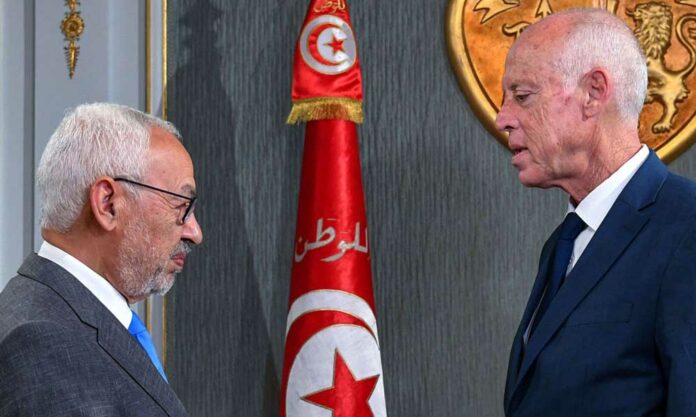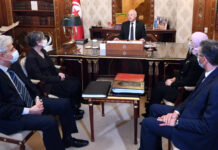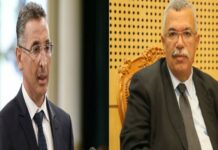The decision of the head of the Ennahda movement to dismiss the movement’s executive office sheds light on the contradiction of Rached Ghannouchi, who calls on Tunisian President Kais Saied to implement democracy that he does not apply within his party, as he is still maneuvering to monopolize the leadership of the movement despite the crisis it has been going through since Kais Saied announced exceptional measures in The twenty-fifth of last July and announced on Monday to extend it indefinitely, which may lead to the disintegration of the movement.
A statement issued by Ennahda on Monday said, “In interaction with the general trend of restructuring the executive office, the head of the movement decided to exempt all members of the executive office and re-form it in a way that responds to the requirements of the stage.”
With his dissolution of the Executive Office, Ghannouchi seemed farther “legally” and democratically from what he objects to in the decisions of President Kais Saied, which is the reliance on Article 80 of the constitution, as the state is a work system that takes into account the higher interests of the people, while political movements are based on consensus and not on supreme decisions.
The paradox is that Ennahda operates in its internal institutions in the style of the presidential system, and adheres at the national level to the parliamentary system.
This is in addition to widespread criticism from prominent leaders in Ghannouchi’s party, who demanded that he abandon the leadership and accused him of badly managing the political crisis in the country after President Kais Saied froze parliament and dismissed the government within exceptional measures.
Observers consider that Ghannouchi’s decision aims to convey messages inside and outside that he is still the first in control of the Ennahda Movement, despite the cracks that the movement has been witnessing for some time.
What is happening in Ennahda now is a political maneuver, something that no longer concerns the Tunisian street. Rather, Ghannouchi is now living on new illusions and sending messages stating that he is the first in control of Ennahda, which he turned into a private property, as many see.
Observers expect the disintegration of the Ennahda movement after President Saied’s decision to extend the procedures he approved, which means the end of Parliament, with which the stage of Ennahda‘s rule will end.
The extension of the exceptional period is almost announcing the end of the current parliament. President Saied will complete the legal solutions that will authorize him to dissolve parliament at a later stage.
Many analysts also consider that there is no longer any justification to talk about the frozen parliament, as it ended on the twenty-fifth of July, the parliament’s legitimacy has fallen through its practices that were contrary to the interests of the Tunisian people, and most of its members must be prosecuted and this is what is happening now. The democratic experiment has been neglected, which led to its destruction, so there is no longer any justification to talk about Parliament.
Today, Ennahda has become besieged because it has lost the position of a strong majority. It is blocked institutionally, given the exceptional measures taken by the president who built his steps on Ennahda‘s mistakes and the gaps it left.











